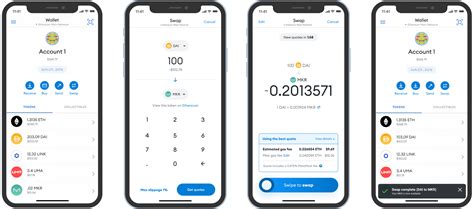Detecting Ethereum Providers with Metamask in JavaScript
Especially those built using Ethereum-Based platforms such as DApp providers or decentralized finance (defi) applications, it is essential to ensure seamless integration. One crucial aspect of this is detecting the Ethereum provider connected to the user’s account.
The detectethereunumMrovider library from @metamask/detect-provider provides a straightforward way to accomplish this. In this article,
Setting Up DetectEneummProvider
First, you need to install the detectethereummprovider library using npm or yarn:
`bash
NPM Install @Metamask/Detect-Provider
`
Or with Yarn:
`bash
Yarn Add @Metamask/Detect-Provider
`
Next, Import and Initialize the provider in your javascript code. Here’s an example of how you can do it:
`JavaScript
Import DetectethereUmProvider from ‘@metamask/detect-provider’;
Const Ethereum = Await detectethereunumMrovider ();
`
In this snippet, Ethereum is assigned the result of thedetectethereummprovider function call.
Connecting to a Specific Chain
Chain, you need to specify the chain details. This includes the Network ID (e.g., 1 for Mainnet, 4 for Ropsten), Gas Price, and other optional parameters. Here’s an example of how to do it:
`JavaScript
Const chainid = ethereum.chainid;
console.log (chain ID: $ {chainid});
if (chainid === 1) {
// Mainnet Settings
} Else If (Chainid === 4) {
// Ropsten Network Settings
}
`
In this example, we’re checking the chainid property to determine which chain settings to apply. You can add more conditions as needed.
Additional Parameters

The detectethereunumMrovider function returns an object with several properties that you can use your interactions with Ethereum:
chainid: the network id.
Networkname: The Name of the Network (E.G.,” ETH “,” ERC20 “).
Gasprice: The Gas Price in Wei (1 Wei = 1/10^15 ether).
maxBLOCKNUMBER: the maximum block number to retrieve.
.
You For example:
`JavaScript
Const Gasprice = Ethereum.gasprice;
Console.log (Gas Price: $ {GASPRICE});
Const accounts = ethereum.accounts;
console.log (“Accounts:”);
accounts.foreach ((account) => console.log (account));
`
Example Use Case
Here’s an updated version of your code that includes a Basic Login System:
`JavaScript
Import DetectethereUmProvider from ‘@metamask/detect-provider’;
Const Ethereum = Await detectethereunumMrovider ();
Async Function Login () {
// Your Login Logic Here …
}
login ();
`
When After
Metamask in your javascript application to detect specific Ethereum providers and connect them to various chain settings.